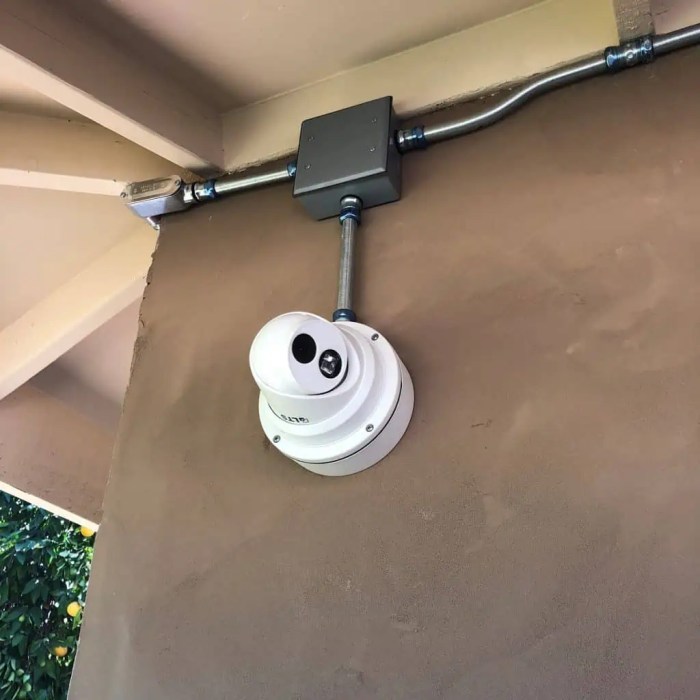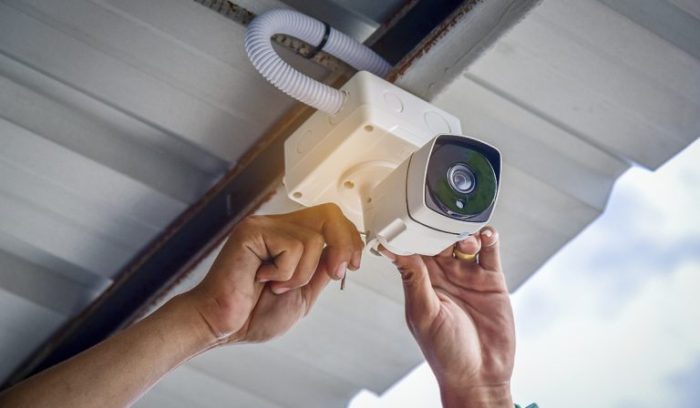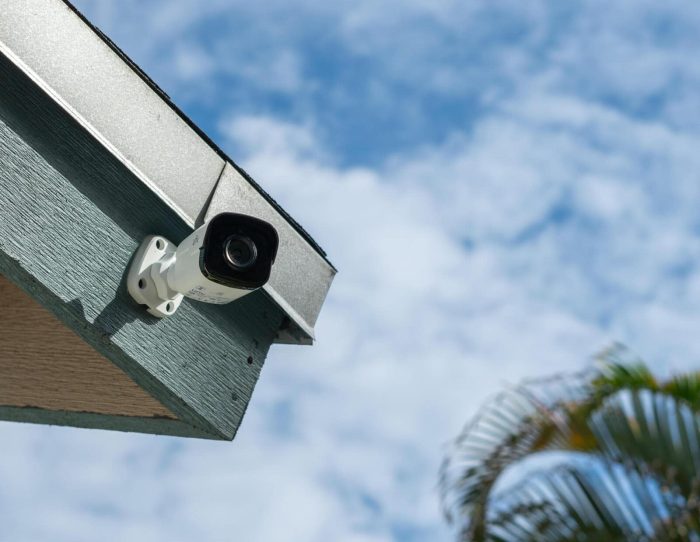Enhancing Security: A Guide to Security Camera Installation Near Me

Security camera installation near me sets the stage for this enthralling narrative, offering readers a glimpse into a story that is rich in detail and brimming with originality from the outset. From the importance of security cameras to the various types available, this guide will delve into all aspects of ensuring safety and peace of mind for your property.
As we explore the different factors to consider, the debate between professional installation and DIY methods, and the cost breakdown, you'll gain a comprehensive understanding of how to make the best choice when it comes to securing your surroundings.
Importance of Security Camera Installation
Having security cameras installed near your property is essential for ensuring the safety and security of your surroundings. These cameras act as a deterrent to potential criminals and provide valuable evidence in case of any incidents.
Enhanced Safety and Crime Deterrence
- Security camera installation can help deter criminal activity by creating a sense of surveillance and accountability.
- Cameras can capture suspicious activities and provide real-time monitoring, allowing for immediate response to any security threats.
- By having security cameras in place, you can increase the safety of your property and the people within it.
Impact of Security Cameras on Security
- Statistics show that properties with security cameras are less likely to be targeted by burglars or vandals.
- In cities where security cameras are prevalent, there has been a decrease in crime rates and an increase in the overall safety of the community.
- Many law enforcement agencies rely on security camera footage to solve crimes and apprehend suspects, highlighting the importance of these devices in enhancing security.
Types of Security Cameras

When it comes to security cameras, there are several types available in the market, each with its unique features and benefits. Let's explore some of the most common options:
Dome Cameras
Dome cameras are named for their dome-shaped design, making them discreet and less intrusive. These cameras are commonly used in indoor settings and are known for their wide-angle views.
Bullet Cameras
Bullet cameras are long and cylindrical in shape, making them suitable for outdoor use. They are often weatherproof and have a longer range, making them ideal for monitoring large outdoor areas.
PTZ Cameras
PTZ (Pan-Tilt-Zoom) cameras offer the flexibility to pan, tilt, and zoom to capture different angles and focus areas. These cameras are popular for their ability to cover a wide range of views.
Wireless Cameras vs. Wired Cameras
When it comes to installation, wireless cameras are generally easier to set up since they don't require extensive wiring. However, wired cameras are known for their reliability and consistent power source. Wireless cameras may be susceptible to signal interference, while wired cameras offer a more stable connection.
Factors to Consider Before Installation
When it comes to installing security cameras, there are several important factors to take into consideration to ensure optimal performance and effectiveness. From camera placement to lighting conditions, each aspect plays a crucial role in enhancing the overall security of your property.
Ideal Camera Placement
- Identify high-risk areas: Before installing security cameras, assess your property to determine the most vulnerable spots that require monitoring.
- Strategic positioning: Place cameras at entry points such as doors and windows, as well as in areas with valuable assets to maximize coverage.
- Elevated mounting: Mount cameras at a higher position to prevent tampering and ensure a wider field of view.
Lighting Conditions and Weatherproofing
- Consider ambient light: Install cameras in well-lit areas to capture clear footage, and use infrared cameras for night vision in low-light conditions.
- Weatherproof cameras: For outdoor surveillance, opt for weatherproof cameras that can withstand harsh weather conditions like rain, snow, and extreme temperatures.
- Protective enclosures: Use protective enclosures to shield cameras from dust, debris, and other environmental factors that could affect their performance.
Professional Installation vs. DIY

When it comes to installing security cameras, one of the main decisions you'll need to make is whether to hire professionals or do it yourself. Each option has its own set of advantages and disadvantages that you should consider before making a decision.
Advantages and Disadvantages of Hiring Professionals
Professional installation of security cameras can offer several benefits, such as:
- Expertise: Professionals have the knowledge and experience to install cameras properly and ensure they are positioned correctly for maximum effectiveness.
- Time-saving: Hiring professionals can save you time and effort, as they can complete the installation efficiently.
- Technical support: Professionals can provide ongoing technical support and maintenance for your security system.
However, there are also some drawbacks to hiring professionals:
- Cost: Professional installation can be more expensive than doing it yourself.
- Dependence: You are dependent on the availability and schedule of the professionals for installation and maintenance.
Steps Involved in a DIY Security Camera Installation
If you decide to go the DIY route, here are the general steps involved in installing security cameras on your own:
- Choose the right location for your cameras.
- Mount the cameras securely on walls or ceilings.
- Connect the cameras to a power source and to your recording device.
- Set up the recording device and configure the camera settings.
- Test the system to ensure everything is working properly.
Potential Challenges Faced by Individuals Opting for DIY Installation
While DIY installation can be cost-effective, there are some challenges you may encounter:
- Lack of expertise: You may not have the technical knowledge to install the cameras correctly or troubleshoot any issues that arise.
- Time-consuming: DIY installation can be time-consuming, especially if you encounter difficulties during the process.
- Limited support: If you run into problems with your DIY installation, you may not have access to the same level of technical support as you would with professional installation.
Cost of Installation
When it comes to installing security cameras, the cost is an important factor to consider. The total cost of installation can vary depending on several factors such as the type of cameras, the number of cameras, the complexity of the installation, and whether you opt for professional installation or DIY.
Breakdown of Cost Components
The cost components of security camera installation typically include the price of the cameras themselves, additional equipment like cables and connectors, labor costs if you hire professionals, and any necessary permits or licenses. It's important to factor in all these components when budgeting for your security camera installation.
Average Costs for Professional Installation Services
On average, professional installation services for security cameras can range from $300 to $1,500 per camera. This cost includes the labor of installing the cameras, setting up the monitoring system, and ensuring everything is working correctly. The total cost will depend on the number of cameras being installed, the type of cameras, and the complexity of the installation.
Ways to Save Money
Consider DIY installation
If you have some technical skills and knowledge, you can save money by installing the security cameras yourself.
Shop around for deals
Look for discounts on cameras and installation services to save on costs.
Opt for wireless cameras
Wireless cameras are usually easier to install, which can reduce labor costs.
Bundle packages
Some companies offer bundle packages that include cameras, installation, and monitoring services at a discounted rate. Consider these options to save money without compromising on quality.
Final Summary

As we conclude this insightful discussion on security camera installation near me, remember that the right choice can make a significant difference in safeguarding your home or business. By weighing the options and understanding the nuances of installation, you're one step closer to a more secure environment.
Top FAQs
What is the ideal camera placement for maximum coverage?
To achieve optimal coverage, consider placing cameras at entry points, corners of the property, and areas with high traffic. This ensures a comprehensive view of the surroundings.
What are the advantages of wired versus wireless security cameras?
Wired cameras offer a more stable connection but require more complex installation, while wireless cameras are easier to install but may experience signal interference. Choose based on your specific needs.
How can I save money on security camera installation?
You can save money by opting for DIY installation, comparing prices from different providers, or looking for bundled packages that offer discounts on multiple cameras.

